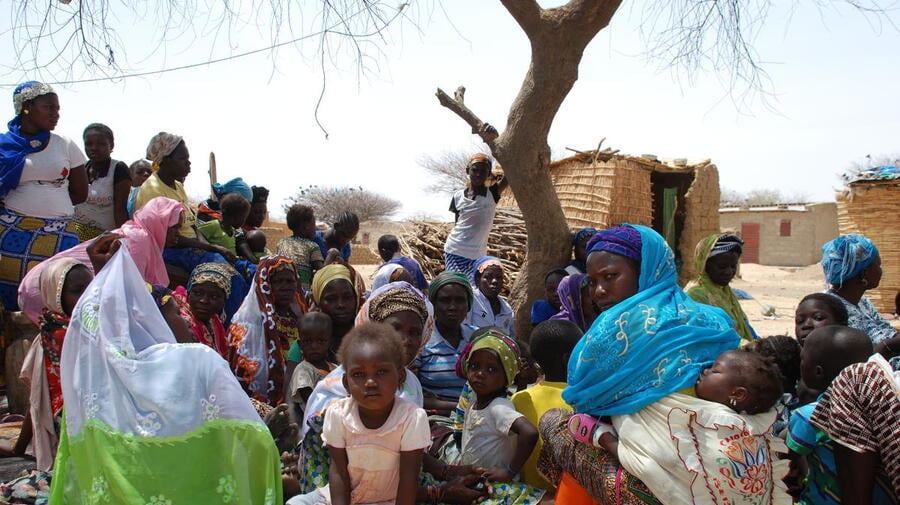Burkina Faso has one of the fastest-growing internally displaced populations in the world, now totaling more than 2 million people, while at least three million people in Cameroon are facing acute food insecurity, according to government data from both countries.
Violence linked to Al-Qaeda and the Islamic State group has increased the number of displaced people in Burkina Faso by more than 2,000% since 2019, the majority of them women and children, according to the country’s authorities. Figures released in May showed that more than 2 million people are internally displaced in West Africa, fueling a serious humanitarian crisis. The violence has divided a once peaceful nation, driving people from their homes, off their farms, and into congested urban areas or makeshift camps. This led to two coups last year, with military leaders promising to stem insecurity, but jihadist attacks have continued and expanded since the second coup in September. Aid groups and the government have been scrambling to meet the lack of funds and growing needs but about a fourth of the displaced people need help and tens of thousands face catastrophic levels of starvation.
Meanwhile, the situation in Cameroon is not any better, as the number of people who face acute food insecurity has increased from 2.8 million by 2022 to more than 3 million people at present. This shows a continuing trend in recent years, according to experts, that has been driven by declining agricultural yields, climate change and internal conflicts engendering massive population displacements. The protracted armed struggle by the separatists fighting for independence for the English-speaking North West and South West regions from the majority francophone Central African nation has so far resulted in an estimated 3,000 killed and over 700,000 forced to flee their homes, according to the United Nations. Apart from the secessionist conflict, food insecurity among Cameroonians has been swelling also because of a persistent Boko Haram-fueled insurgency in the north and the dwindling agricultural yields.



